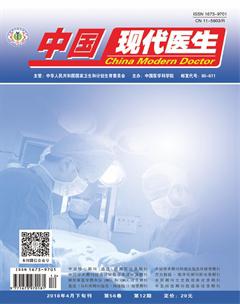针对性护理干预对糖尿病足患者治疗依从性及足部自护能力的影响
刘京 张庚良 杨娜
[摘要] 目的 探讨针对性护理干预对糖尿病足患者治疗依从性及足部自护能力的影响。 方法 选择2015年8月~2017年8月在我院治療的糖尿病组70例为研究对象,随机分为干预组与对照组各35例。对照组给予常规护理,干预组给予针对性护理干预。比较干预前后两组糖尿病治疗依从性、足自护水平、Wagner评分、疼痛评分。结果 干预组出院时及出院后3个月糖尿病治疗依从性均显著高于对照组,差异有统计学意义(P<0.05)。干预组出院时及出院后3个月足部自护知识水平评分均显著高于对照组,差异有统计学意义(P<0.05)。出院后3个月,干预组Wagner分级低于对照组,差异有统计学意义(P<0.05)。两组出院时及出院后3个月疼痛评分均显著低于干预前,差异有统计学意义(P<0.05);干预组出院后3个月疼痛评分显著低于对照组,差异有统计学意义(P<0.05)。 结论 针对性护理干预能够显著提高糖尿病组患者治疗依从性以及足部自护水平。
[关键词] 针对性护理干预;糖尿病足;依从性;自护能力
[中图分类号] R587.1;R473.5 [文献标识码] B [文章编号] 1673-9701(2018)12-0160-03
Influence of Targeted Nursing Intervention on Treatment Compliance and Foot Self-Care Ability in Patients with Diabetic Foot
LIU Jing1 ZHANG Gengliang1 YANG Na1 ZHANG Yali2
1.Department of Endocrinology, TCM Hospital of Hebei Province, Shijiazhuang, Hebei 050000, China; 2.Department of Surgery, TCM Hospital of Hebei Province, Shijiazhuang, Hebei 050000, China
[Abstract] Objective To investigate the influence of targeted nursing intervention on treatment compliance and foot self-care ability in patients with diabetic foot. Methods 70 patients with diabetic foot in our hospital from August, 2016 to August, 2017 were selected and randomized into intervention group and control group with 35 patients in each. Patients in control group received routine nursing care. Patients in intervention group received targeted nursing intervention. The treatment compliance of diabetes, foot self-care ability, score of Wagner and pain score before and after intervention were compared in two groups. Results The treatment compliance of diabetes when and 3 months after discharged in intervention group was significantly higher than that in control group(P<0.05). The scores of foot self-care knowledge when and 3 months after discharged in intervention group were significantly higher than those in control group(P<0.05). The Wagner grade of intervention group 3 months after discharged was significantly lower than that of control group (P<0.05). The pain scores when and 3 months after discharged in two groups were statistically lower than that before intervention(P<0.05). The pain score 3 months after discharged in intervention group was significantly lower than that in control group(P<0.05). Conclusion Targeted nursing intervention could improve treatment compliance and foot self-care ability in patients with diabetic foot significantly.
[Key words] Targeted Nursing Intervention; Diabetic Foot; Compliance; Self-Care Ability

